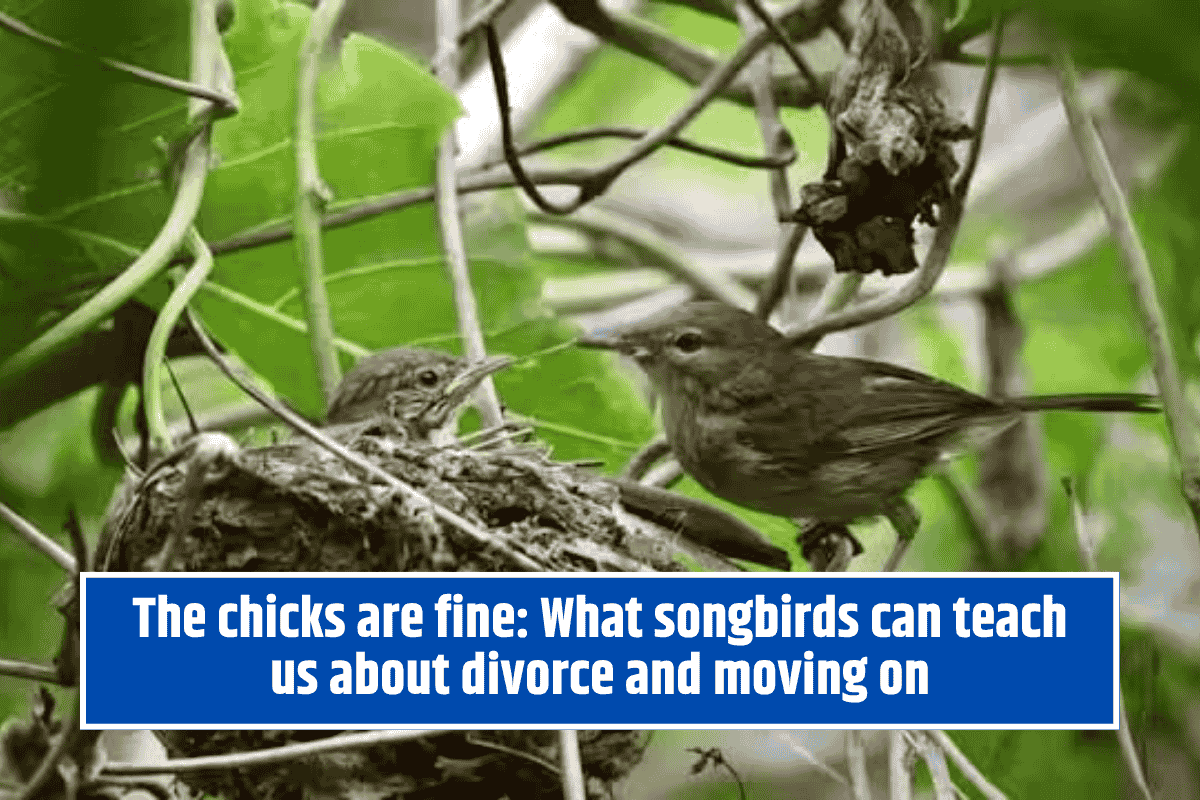In human families, it’s common for parents to separate, which often leads to changes in the family structure. While many parents manage to handle the separation well, it can still have lasting effects on their children’s development, behavior, and health. But what happens when similar situations occur in the animal kingdom, especially among species that typically form long-term partnerships? This article explores an interesting study on Seychelles warblers, a tropical bird species known for their long-lasting partnerships. Surprisingly, the research found that separation in these birds had no long-term effects on the health of their offspring.
The Seychelles Warbler and Its Unique Family Structure
The Seychelles warbler is a small songbird found exclusively on the Seychelles islands, located northeast of Madagascar. These birds are known for forming strong, long-term partnerships, sometimes lasting up to 15 years. Both parents typically stay together to raise their chicks and defend their shared territory. For many bird species, having both parents involved in raising offspring is essential for their survival. However, about 14% of warbler couples experience separation, where one of the parents leaves their original partner and moves to a new mate while still having offspring in the nest.
How Researchers Measured Stress in Warbler Chicks
Over several decades, researchers have carefully studied the population of Seychelles warblers on Cousin Island. They have gathered valuable data on the birds’ relationship status, well-being, lifespan, and reproductive success. In this study, the researchers focused on what happens to the chicks when their parents separate.
Measuring stress in birds is different from how we measure it in humans. While humans often check cortisol levels in saliva or hair, bird stress is measured using other markers. In the case of Seychelles warblers, the researchers used three biological indicators: telomere length (which protects DNA), the percentage of red blood cells (which shows how well the bird uses oxygen), and body condition (which indicates fat reserves). These biomarkers allowed the researchers to assess the stress levels and overall health of the chicks.
Surprising Findings: Separation Doesn’t Stress Warbler Chicks
The results of the study were unexpected. Despite the separation of their parents, the warbler chicks showed no signs of increased stress. There were no long-term negative effects on their survival, health, or ability to reproduce.
Why might this be? One reason is that Seychelles warblers do not dwell on the past. When a separation occurs, one parent leaves, and the other quickly fills the void. The remaining parent often finds a new mate almost immediately, ensuring that the chicks still receive care. In addition, Seychelles warblers have a unique system known as “cooperative breeding.” This means that other warblers, who might not have their own breeding territory, can join a couple and help raise the offspring. This extra support ensures that the chicks continue to thrive, even after a separation.
Lessons from the Seychelles Warbler
This study offers important insights into how animals handle family changes. For Seychelles warbler chicks, parental separation does not seem to have a negative impact, as the family structure is quickly adjusted with the help of new mates or even other adult birds.
While this study focused on one species, it opens the door to more research on how other animals, particularly those that form long-term partnerships, cope with similar situations. The adaptability of the Seychelles warbler provides an interesting example of resilience in the animal kingdom and may offer lessons about how different species manage family dynamics in the wild.
The study of the Seychelles warbler has shown that parental separation in animals may not always lead to negative outcomes, as previously assumed. These birds adapt quickly, ensuring their offspring still receive care and support, even when their parents separate. This highlights the complex social structures in nature and how animals find ways to cope with changes in family dynamics. While this research focuses on one species, it raises important questions about how other animals handle family breakdowns and how they adapt to such changes.

